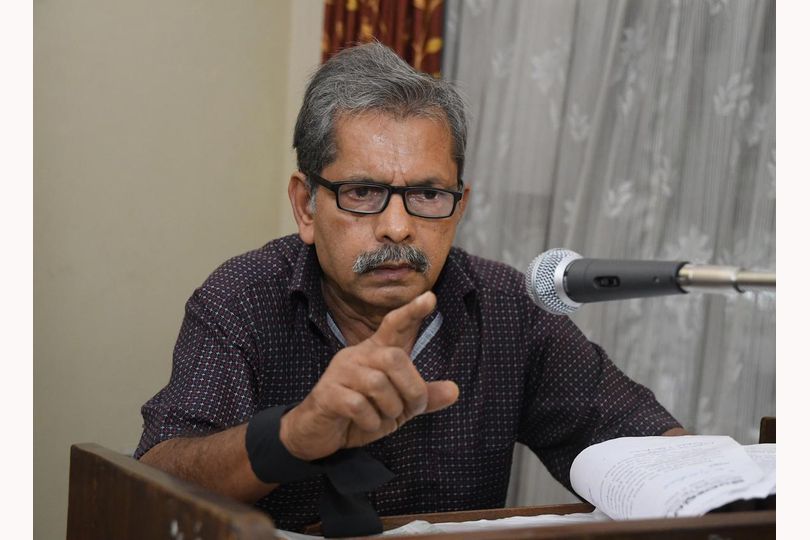A voice against communalism: Author G. Rajashekhar passes away at age 75
on Jul 22, 2022

One of the earliest instances of Hindutva organisations attacking Muslim men for transporting illegal cattle in Karnataka was one that Rajashekhar had documented.
G Rajashekhar, a progressive author, thinker, and human rights advocate from Udupi, died on Wednesday, July 20 in Bengaluru at the age of 76. For the last three years, he had been struggling with a rare neurological illness called Progressive Supra-Nuclear Palsy (PSP or Atypical Parkinson's). The Karnataka Sahitya Academy Award was given to his work, "Bahuvachana Bharatha" (plural India), in 2017. He withdrew the award, however, along with other writers of the time, citing the rise of racial violence in the nation.
Rajashekhar, a fierce opponent of Hindutva, was born in 1946 in the southern Sangh Parivar stronghold of Gundmi, in coastal Karnataka's Udupi district. He began his lifetime fight against religious fanaticism from this point on, which made him a frequent target of strong right-wing organisations.
Rajashekhar was a member of the activists who established the Karnataka Komu Souharda Vedike or Communal Harmony Forum in the early 2000s as the state's first significant coalition against right-wing Hindutva. The late fiery journalist and activist Gauri Lankesh, as well as Nagari Babaiah, KL Ashok, and Pattabhirama Somayyaji, were notable members of the forum.
Rajashekhar put together some of the first thorough fact-finding reports on the atrocities done by Hindutva fanatics in Coastal Karnataka along with his close friend and comrade K Phaniraj. Initially connected to the Communist Party of India (Marxist), the two pals split apart in the late 1990s. While Rajshekar was the internal critic who could not tolerate the quiet over Stalin's excesses in Russia and the horrors of Mao's China, Phaniraj felt that the party was not devoting enough work to combat the emergence of right-wing elements.
Rajshekhar and Phaniraj documented multiple incidents of sectarian violence along the coast beginning with the Surathkal riots in 1998, including the incident in March 2005 where a Muslim cattle trader and his kid were paraded in public naked. These documents are in high demand among authors and academics who are examining the rise of Hindu nationalism in Karnataka.
According to journalist and author Naveen Soorije, "G Rajashekhar was one of the few individuals who spoke out against the attacks on Muslims and Dalits in the early 2000s. When only four persons attended marches against the Sangh Parivar, Rajashekhar would continue to march without hesitation."
"In the 2000s, communist organisations exclusively discussed the economy; G Rajashekhar was the one who shed light on the subject of communalism within the communist organisations," he continued.
Rajashekhar's passing "was a terrible loss for everyone," wrote Siddaramaiah, the leader of the opposition in the assembly and a former chief minister of Karnataka. Siddaramaiah described him as a well-known Kannada critic and a brilliant thinker.



.jpg)






.jpg)

.jpg)
.jpg)
.jpg)
.jpg)
.jpg)










Sorry! No comment found for this post.